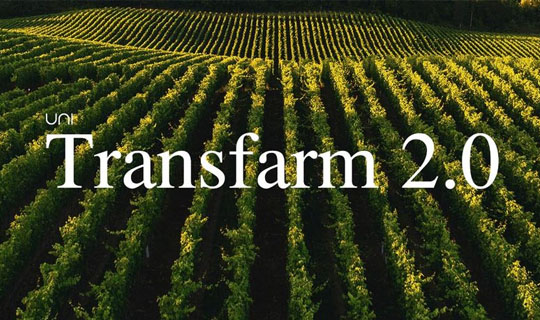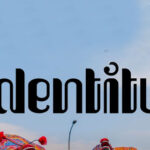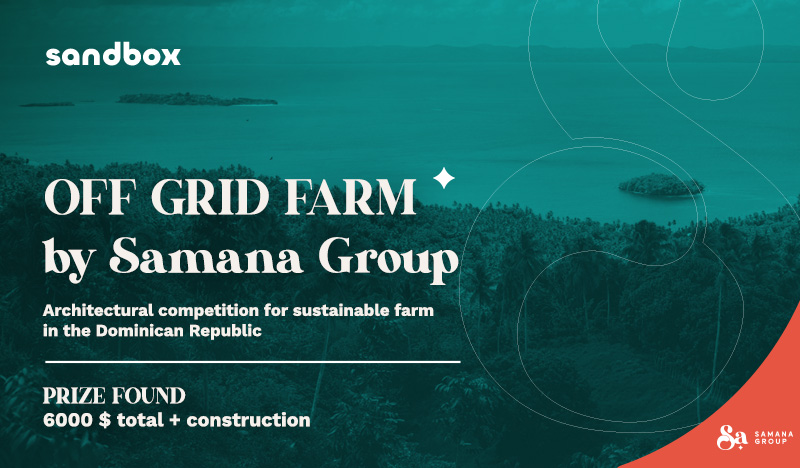Submission: May 03, 2022
Registration: May 02, 2022
Language: English
Location: Windhoek, Namibia
Prizes: Please see the details below
Type: Open
Finding sustenance during prehistoric times that didn’t involve moving from one place to another, hunting and getting to settle down in one place is how agriculture started as a practice. It has been the key source of a region’ dietary needs other than meat. Farming practice maintained equilibrium back when the population was not a huge issue, but it has been stumbling in many ways now.
Farming, be it large scale, traditionally on land or small scale, modern in greenhouses and other spaces, is now on the verge of collapsing as an industry. The industry is hinged on local farmers in rural areas where resources and finances are scarce, making it difficult for them to continue the practice and support the entire food supply system on their own.
Cooperation on all levels is needed. With technology advancing at a faster pace and alternative methods being invented to maintain a healthy inflow of food, farming in places never thought of before is becoming a possibility.
The shift to newer methods of farming from the traditional ones is going to be a big change, can this farming shift be altered physically into dense spaces as easily as any other modern intervention would?
Design an urban farming facility in a city with a considerable density and in need of food security. The facility must cater to the food needs of the neighbourhood and also sustain the supply end of the chain. The materials and mechanisms used must also remain in balance without overloading each other. Sustainable strategies must be incorporated in the design so that the negative impact of the facility on the environment is reduced while improving building performance.
Transparency and permeability must be offered to local citizens so that they can access and learn about the system of food supply and farming practices for self-sustenance. Because the facility is to be built amidst a settlement, keeping a farm in a managed state is essential so as to not disrupt the functioning of the neighbourhood.
The design must respond to the existing site conditions and the wider socio-cultural, economic and environmental settings in the design approach.
Prizes
Winner – 6000 USD
Cash+Crafted Trophy & certificate + UNI Year Book Copy + UNI Merchandise + Insignia + Opportunity to associate with UNI as a curator
Runner – Up – 6 x 1400 USD
Cash+Crafted Trophy & certificate + UNI Year Book Copy + UNI Merchandise+Insignia
People’s Choice – 4 x 600 USD
Cash+Crafted certificate + Insignia
Honorable Mention – 12 x 600 USD
Cash+Crafted certificate + Insignia
The prize pool is dependent on the total number of registrations received. Please check the awards and fees section to learn more about it. There will be a total of 100 (20%) entries that will be shortlisted for the final awards. All the shortlisted entries will be entitled to e-certificates.
Deadlines
26 November 2021, 4:00 PM GMT+01:00 – Regular registration starts
26 November 2021, 4:00 PM GMT+01:00 – Public voting starts
02 May 2022, 5:00 PM GMT+02:00 – Regular registration ends
03 May 2022, 5:00 PM GMT+02:00 – Submission ends
18 May 2022, 5:00 PM GMT+02:00 – Shortlisted entries announced
24 May 2022, 5:00 PM GMT+02:00 – Jury evaluation starts
17 June 2022, 5:00 PM GMT+02:00 – Jury evaluation ends
18 June 2022, 5:00 PM GMT+02:00 – Public voting ends
30 June 2022, 5:00 PM GMT+02:00 – Result announcement
Eligibility
- The minimum eligible age for participation is 18 years.
- The competitions are open worldwide for designers from any discipline.
- You can participate as an individual or as a team of a maximum of 4 members.
- All students and professionals can participate in the competitions.
- For Students: A student is someone who is currently enrolled in a full-time graduate/undergraduate program at a university anywhere in the world on the date of registration. We will need proof of identity upon the result declaration. The proof of identity should clearly state that you were enrolled in the institution at the time of registration. You may also produce a bonafide/authorized certificate from the institution as proof of identity. Students are allowed to involve one mentor/professor/guide in their team provided the mentor has been authorized via a bonafide certificate of the University.
- All the participants who do not belong to the student category will be considered professionals by default. PhD candidates will also be considered professionals.
- Institutional access is a program for students only if they are participating in the competition as a group of 20 people and want to submit 5-20 entries together. Institutional access has to be done under the guidance of a mentor/professor.
- A team with even one professional will be considered as a professional entry.








